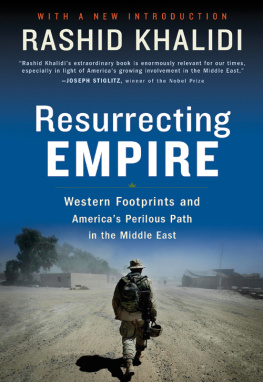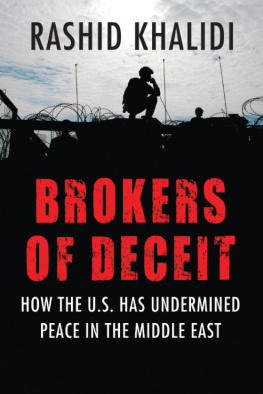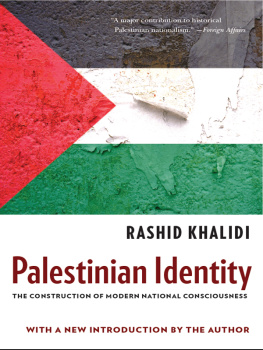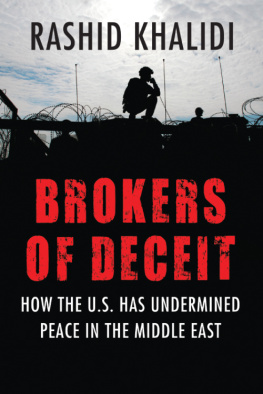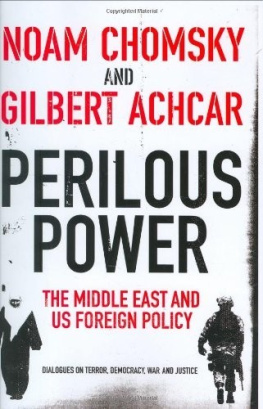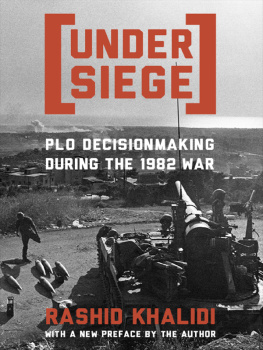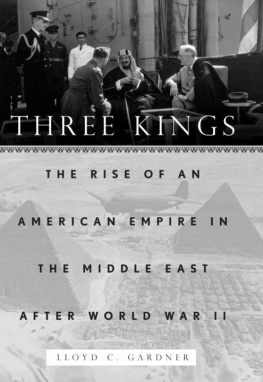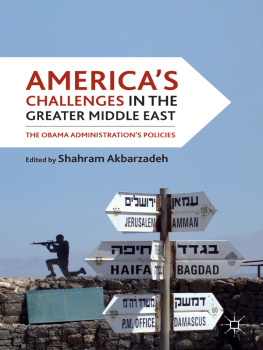

INTRODUCTION
THE PERILS OF IGNORING HISTORY

I wrote this book before, during, and immediately after the March 2003 invasion of Iraq, out of a desire to warn against what I believed was a looming disaster. It was first published in April 2004. I write today against the background of twenty months of a chaotic, mismanaged American occupation of Iraq. Before and after the book appeared, I spoke publicly about mistakes I perceived the United States was making in the Middle East. Everywhere I spoke, I found deep misgivings about the war, and a strong undercurrent of unease about the Bush administrations approach to the Middle East. This book is an attempt to explain why there are solid, historical grounds for such misgivings and such unease.
As the United States has marched into the Middle East as an occupying power responsible for creating a new political order in a major Arab country, seemingly stepping into the boots of former colonial rulers, it is difficult for someone familiar with the history of this region to avoid a sense of dj vu. Nothing so ambitious, or so fraught with peril, has been tried there since just after World War I, when Britain and France engaged in their last burst of colonial expansion under the guise of League of Nations mandates. Their effort was strongly resisted by Middle Easterners, but it also resulted in the creation of many of the states, and produced many of the problems, in that region today. This historical context was largely ignored in the lead-up to war. Even less attention was paid to how Middle Easterners perceived American actions in terms of that recent history.
Moreover, as an American who grew up during the Vietnam War era, it is hard to avoid a fear that the ghosts most of us thought had been permanently laid to rest thenthe ghosts of American military overreach and imperial arroganceare back to haunt us. And for an American academic of Arab ancestry with family in many parts of the Middle East, who travels to the region regularly, and with students and colleagues teaching and studying all over it, it is hard to remain silent when it is crystal clear that what is happening there bears no resemblance whatsoever to the optimistic picture painted by the Bush administration.
This is particularly painful for me as a historian, because most of the extensive public debate about the relationship between the United States and the Middle East since September 11, 2001, has been taking place in a historical vacuum. The debate has been largely driven by denigrating stereotypes about Arabs, Islam, and the Middle East. It has rarely been grounded in a careful reading of how the history of the regions stormy recent encounters with the West may affect a new phase of American involvement in the vast area between Morocco and central Asia, and between the Mediterranean and the Indian Ocean.
A word on differing attitudes to history is in order here. One of the aims of this book is to give readers some of the basic history of the modern Middle East. This includes in particular the history of Western occupation and indigenous resistance, of attempts to establish constitutional systems in Middle Eastern states, of Western control of Middle Eastern oil, and of Western, and especially American, involvement in the Palestine question. Such knowledge is sorely lacking in the United States. But many Americans consider history, any history, as irrelevant to the present and the future. Perhaps this peculiarly American lack of interest in historyespecially the history of othersis rooted in the fact that the United States is a vast continental island that never in its own history suffered foreign occupation, and that for the last two centuries had little reason to fear attack on its homeland by othersat least not until 9/11. In this providential isolation, the United States has been nearly unique among the countries of the world. For most other peoples, ignoring others history is an impossible luxury.
Not surprisingly, most Americans do not realize that many influential Middle Eastern intellectuals had a liberal orientation for more than a century. They are unaware of the early constitutional experiments that took place in the Middle East, and of efforts to establish parliamentary systems there in the twentieth century. They are unlikely to know how Western powers undermined these systems by their repeated interventions, and how much resentment this caused among Middle Easterners. There has nevertheless been much airy pontification about the absence of democratic traditions in the Islamic world, how Islam is antithetical to democracy, and why they resent us because of our way of life. This contemptuous dismissal of real history, real experience, and real traditions in favor of crude stereotypes has received little response from the only people qualified to counter it: experts on the Middle East.
Silence on the part of the experts is part of a larger problem, of why public discourse in the United States about foreign affairs is so often driven by the lowest common denominator, by ill-informed pundits rather than by people who are actually knowledgeable about the rest of the world. Perhaps it is because many prefer to hear what is familiar and reassuring, rather than what is strange and discomforting. Another of the objectives of this book is to reflect the history lying behind Middle Eastern perceptions of the American role there, perceptions that may not match what Americans think of their countrys role in the world. Some would cavalierly dismiss others views of the United States, or would address them solely via strategic information campaigns. This is to underestimate dangerously what is at work here: these perceptions and the history behind them are extremely important, for how others perceive us, and how they perceive their own history, rather than how we perceive ourselves, will determine how others act. We should be able to consider whether these perceptions may in fact be accurate, even if they are unflattering, without being told that we are anti-American or blame-America-firsters. This is an essential element of the respect for the views of others that we would expect to receive for our own views, but which is often missing when the views of Middle Easterners are concerned.
But the inaccuracies and distortions in discussions of the Middle East cannot be blamed solely on the media, the Beltway think tanks, and policy makers. As stated above, blame for this situation also lies with Middle East experts, many of whom have not tried hard enough to speak to broader audiences, who disdain the process of clarification that is necessary for communicating with the general public about complex subjects, and who are rarely institutionally rewarded for doing so. Like other academics, I struggle with a tendency to overelaborate when writing for a nonspecialist audience such as the one at which this book is directed. I hope I have overcome that tendency. Given how little Americans know of the rest of the world, and the importance of historical knowledge with respect to the Middle East, it is the duty of experts to do everything possible to inform the general public in a way that has not been done in the past. This book is an effort to do just that.
That the American public knows too little about a region their country is getting more and more deeply involved in is also partly a function of the pervasive atmosphere of intimidation that makes many Middle East experts reluctant to express themselves frankly. This is true generally about Middle East issues, and particularly true about the sensitive issues touching on Israel and Palestine. It is in some measure a function of the fact that many Americans have intense feelings about this subject combined with limited knowledge, a combination not conducive to the shedding of light on a complex issue. It is also a function of the gross oversimplification that is operative in both the political and media arenas, oversimplification that reaches near toxic levels where the Middle East is concerned. Such an atmosphere is extremely harmful to American public discourse, especially to the necessary process of infusing the debate on U.S. actions in the Middle East with the context and background without which it is impossible to understand what is happening there or why.
Next page
